Online CDL Permit Practice Tests
state North Carolina
Ace Your North Carolina CDL Exam: Free Practice Tests
Don't waste your time - start practicing with free online tests today
Our free online CDL practice tests cover all the essential topics, including General Knowledge, Air Brakes, and Combination Vehicles. Practice at your own pace, anytime, anywhere, to build your confidence and ensure you’re fully prepared for your CDL exam.
General Knowledge Test
Air Brakes
Test
Combination Vehicle Test
Step-by-Step Guide to Getting a CDL in North Carolina
Step 1: Determine Your CDL Class and Endorsements
Determining the appropriate Commercial Driver License (CDL) class and necessary endorsements is a crucial first step toward operating commercial vehicles in North Carolina. The North Carolina Division of Motor Vehicles (NCDMV) provides official guidelines to assist you in making these determinations.
CDL Classes in North Carolina:
Class A CDL: Required for any combination of vehicles with a Gross Combination Weight Rating (GCWR) of 26,001 pounds or more, provided the Gross Vehicle Weight Rating (GVWR) of the vehicle(s) being towed exceeds 10,000 pounds.
Class B CDL: Pertains to any single vehicle with a GVWR of 26,001 pounds or more, or any such vehicle towing another vehicle not exceeding 10,000 pounds GVWR.
Class C CDL: Applies to any single vehicle or combination of vehicles that does not meet the definitions of Class A or Class B but is:
- Designed to transport 16 or more passengers, including the driver.
- Used to transport hazardous materials that require the vehicle to be placarded under federal regulations.
CDL Endorsements in North Carolina:
Depending on your specific driving duties, you may need to obtain one or more endorsements to your CDL:
Hazardous Materials (H) Endorsement: Allows the transportation of hazardous materials requiring placarding. To obtain this endorsement, you must pass the Hazardous Materials knowledge test and complete a Transportation Security Administration (TSA) background check, including fingerprinting.
Tank Vehicle (N) Endorsement: Permits the operation of vehicles designed to transport liquids or gases in bulk tanks.
Passenger (P) Endorsement: Authorizes the operation of vehicles carrying passengers. To obtain this endorsement, you must pass the Passenger Transport knowledge test and a skills test in a representative vehicle.
Double/Triple Trailers (T) Endorsement: Enables the operation of vehicles pulling double or triple trailers.
School Bus (S) Endorsement: Allows the operation of school buses for transporting pupils to and from school or related functions. Obtaining this endorsement requires:
- Six months of driving experience.
- Holding a Class B or Class C commercial driver license.
- Passing both the Passenger (P) and School Bus (S) knowledge tests.
- Holding a Commercial Learner’s Permit (CLP) with these endorsements for at least 14 days.
- Passing a skills test in a school bus of the same vehicle group.
It’s essential to determine the specific CDL class and endorsements applicable to your intended commercial driving activities before proceeding with the CDL application process. This ensures compliance with North Carolina regulations and prepares you for the necessary tests and training.
For more detailed information, refer to the North Carolina Commercial Driver License Manual and the NCDMV website.
Step 2: Obtain a Commercial Learner's Permit (CLP):
Obtaining a Commercial Learner’s Permit (CLP) is a crucial step toward acquiring a Commercial Driver License (CDL) in North Carolina. Here’s a detailed guide to help you navigate the process:
Eligibility Requirements:
Age: You must be at least 18 years old to apply for a CLP in North Carolina.
Driver’s License: Possess a valid North Carolina Class C (non-commercial) driver’s license.
Medical Certification: Provide a valid Medical Examiner’s Certificate (DOT medical card) from a certified medical examiner, demonstrating you meet the physical qualifications required for commercial driving.
Application Process:
Prepare Required Documents:
Proof of Age and Identity: Present one document verifying your age and identity, such as a certified birth certificate or valid U.S. passport.
Social Security Number (SSN): Provide your Social Security card or one document proving you have a Social Security number.
Proof of Residency: Submit two documents proving North Carolina residency, such as utility bills, lease agreements, or bank statements.
Proof of Liability Insurance: Provide one document proving liability insurance coverage from a provider licensed to do business in North Carolina.
Study for Knowledge Tests:
- Review the North Carolina Commercial Driver License Manual to prepare for the required knowledge tests.
Pass Required Knowledge Tests:
- Successfully complete written tests covering general commercial vehicle operation and any additional endorsements you seek (e.g., air brakes, passenger transport).
Apply for the CLP:
Visit a North Carolina Division of Motor Vehicles (NCDMV) driver license office to submit your application.
Provide all required documents.
Pay the applicable CLP issuance fee.
Post-Application Steps:
CLP Validity: Your CLP is valid for 180 days and can be renewed once within a two-year period.
Holding Period: You must hold the CLP for a minimum of 14 days before you are eligible to take the CDL skills test.
For comprehensive details and the most current information, refer to the North Carolina Commercial Driver License Manual and the NCDMV website.
Step 3: Complete Entry-Level Driver Training (ELDT):
Completing Entry-Level Driver Training (ELDT) is a mandatory step for certain Commercial Driver License (CDL) applicants in North Carolina, in accordance with federal regulations established by the Federal Motor Carrier Safety Administration (FMCSA). Here’s what you need to know:
Who Needs to Complete ELDT?
As of February 7, 2022, ELDT is required for individuals who are:
- Obtaining a Class A or Class B CDL for the first time.
- Upgrading an existing Class B CDL to a Class A CDL.
- Obtaining a School Bus (S), Passenger (P), or Hazardous Materials (H) endorsement for the first time.
These requirements are not retroactive; individuals who held a CDL or the specified endorsements before this date are exempt from ELDT for those credentials.
ELDT Curriculum Components
The ELDT curriculum comprises two primary components:
Theory Instruction:
- Covers essential topics such as basic operation, safe operating procedures, vehicle systems, and reporting malfunctions.
- There are no minimum hours required; however, trainees must demonstrate proficiency by scoring at least 80% on assessments.
Behind-the-Wheel (BTW) Training:
- Involves practical driving exercises conducted on a range and public roads.
- While no specific number of hours is mandated, trainees must demonstrate proficiency in all required skills.
Detailed curriculum requirements are outlined in the FMCSA’s ELDT regulations.
Selecting an ELDT Provider
To comply with ELDT requirements, you must complete training through a provider registered with the FMCSA’s Training Provider Registry (TPR). North Carolina mandates that driver education providers conducting commercial vehicle driver training be registered with the FMCSA through the TPR.
Verification of ELDT Completion
Upon completing the training, the provider will electronically submit your certification to the FMCSA. The North Carolina Division of Motor Vehicles (NCDMV) will verify your ELDT completion through the federal Commercial Skills Test Information Management System before allowing you to proceed with the CDL skills test or the hazardous materials endorsement knowledge test.
Additional Considerations
- No Minimum Training Hours: North Carolina does not specify minimum training hours for ELDT; completion is based on demonstrated proficiency.
- Exemptions: Individuals who held a valid CDL or the relevant endorsements before February 7, 2022, are exempt from ELDT requirements for those credentials.
For comprehensive information on ELDT requirements and to find registered training providers, consult the FMCSA’s Training Provider Registry and the North Carolina Division of Motor Vehicles’ official resources.
Step 4: Practice with Your CLP:
After obtaining your Commercial Learner’s Permit (CLP) in North Carolina, it’s essential to practice operating a commercial vehicle to prepare for the CDL skills test. This practice period ensures you develop the necessary driving skills to safely operate a Commercial Motor Vehicle (CMV) under real-world conditions.
CLP Driving Rules in North Carolina:
Supervised Driving: While holding a CLP, you may only drive a commercial vehicle under the supervision of a qualified CDL holder. The supervising driver must:
Age and License: Be at least 21 years old and hold a valid CDL for the same class and type of vehicle.
Endorsements: Have the necessary endorsements for the vehicle and cargo.
Seating Position: Remain seated in the front passenger seat at all times while you are driving.
What to Focus on During Practice:
Pre-Trip Vehicle Inspection: Perform thorough inspections to check for safety and mechanical issues.
Basic Vehicle Control: Practice maneuvers such as straight-line backing, offset backing, and parallel parking.
On-Road Driving: Gain experience in various traffic conditions, including intersections, lane changes, merging onto highways, and following road signs.
Additional Practice Recommendations:
Vehicle Familiarity: Practice in the same class and type of vehicle that you will use for the CDL skills test.
Transmission and Brake Systems: Be aware that if you take your test in a vehicle with automatic transmission or no air brakes, your CDL will have a restriction that may limit the types of vehicles you are legally allowed to drive.
CLP Holding Period:
Mandatory Duration: In North Carolina, you must hold your CLP for at least 14 days before you are eligible to take the CDL skills test.
Validity and Renewal: The CLP is valid for 180 days and can be renewed once within a two-year period.
For official guidance and CDL training resources, refer to the North Carolina Division of Motor Vehicles (NCDMV) or consult an FMCSA-approved training provider.
Step 5: Schedule and Pass the CDL Skills Test:
After holding your Commercial Learner’s Permit (CLP) for at least 14 days, the next step in obtaining your Commercial Driver License (CDL) in North Carolina is to schedule and pass the CDL skills test. This test assesses your ability to operate a commercial motor vehicle safely and competently.
Scheduling the CDL Skills Test:
Contact the NCDMV: To schedule your CDL skills test, you must **call the North Carolina Division of Motor Vehicles (NCDMV) at (919) 715-7000. Online scheduling is not available for CDL road tests; appointments must be made by phone.
Third-Party Testing: North Carolina allows third-party testers to administer CDL skills tests. These are private entities authorized by the state to conduct the testing. Scheduling procedures may vary by provider, so it’s essential to contact them directly for details.
Preparing for the CDL Skills Test:
Vehicle Provision: You are required to provide your own commercial motor vehicle for the skills test. The vehicle must be representative of the class of CDL you are applying for. Ensure the vehicle is in safe operating condition and complies with all regulatory standards.
Documentation: On the day of the test, bring:
- Your valid North Carolina driver’s license.
- Your unexpired CLP.
- Any required medical certification documents.
Components of the CDL Skills Test:
Pre-Trip Vehicle Inspection: Demonstrate your ability to inspect the vehicle to ensure it’s safe for operation. You’ll need to identify and explain the inspection process for various parts and systems of the vehicle.
Basic Vehicle Control Test: Show your skills in controlling the vehicle through specific maneuvers, such as backing, turning, and parking, within a confined area.
On-Road Driving Test: Operate the vehicle in various traffic situations to exhibit safe driving practices, including lane changes, turns, and obeying traffic signals.
Additional Considerations:
Test Preparation: Thorough preparation is crucial. Consider enrolling in a CDL training program to gain hands-on experience and knowledge necessary to pass the skills test.
Retesting: If you do not pass any segment of the skills test, you’ll need to reschedule and retake the failed portion. Policies on retesting, including waiting periods and fees, may vary, so consult with the NCDMV or your third-party tester for specific guidelines.
Successfully passing the CDL skills test is a significant milestone toward obtaining your CDL in North Carolina, enabling you to pursue a career in commercial driving.
Step 6: Obtain Your CDL:
After successfully passing the Commercial Driver License (CDL) skills test in North Carolina, the final step is to obtain your official CDL. Here’s how to proceed:
Issuance of Your CDL:
Temporary Driving Certificate: Upon passing the skills test, you will receive a Temporary Driving Certificate. This certificate allows you to operate commercial vehicles legally while awaiting the arrival of your official CDL.
Official CDL Delivery: North Carolina issues CDLs from a central location and mails them to applicants within 20 days. Ensure that your mailing address on file is current to prevent any delivery issues.
Final Checklist:
Review Information: Upon receiving your CDL, verify that all personal information, endorsements, and restrictions are accurately listed.
Maintain Medical Certification: Keep your Medical Examiner’s Certificate (DOT medical card) up to date, as it’s essential for maintaining your CDL’s validity.
By following these steps, you’ll successfully obtain your North Carolina CDL, enabling you to embark on your professional driving career.
Additional Considerations:
When pursuing a Commercial Driver License (CDL) in North Carolina, it’s essential to be aware of additional considerations that may impact your eligibility and the maintenance of your CDL.
Disqualifying Offenses:
Certain violations can lead to the suspension or revocation of your CDL. These include:
Major Offenses: Such as driving under the influence (DUI), refusal to undergo blood alcohol testing, leaving the scene of an accident, or using a vehicle to commit a felony. A first conviction typically results in a one-year disqualification, while a second offense can lead to a lifetime disqualification.
Serious Traffic Violations: Including excessive speeding (15 mph or more over the limit), reckless driving, improper lane changes, following too closely, or driving a commercial motor vehicle (CMV) without the proper CDL. Accumulating multiple serious traffic violations within a three-year period can result in a 60 to 120-day disqualification.
Hazardous Materials Endorsement (H):
To transport hazardous materials, you must obtain an H endorsement on your CDL. This requires passing a specific knowledge test and undergoing a Transportation Security Administration (TSA) security threat assessment, which includes fingerprinting and a background check. The endorsement is valid for five years or less, aligning with the expiration of your TSA security threat assessment.
Medical Certification:
Maintaining a valid Medical Examiner’s Certificate is crucial for CDL holders. This certificate verifies that you meet the physical qualifications to operate a CMV safely. Failure to keep this certification up to date can result in the downgrade or suspension of your CDL.
Fees:
The cost of obtaining a CDL in North Carolina varies based on the license class and endorsements:
CDL Application Fee: Approximately $25.50 per year for the duration of the license.
Endorsement Fees: Each endorsement, such as hazardous materials or passenger transport, incurs an additional fee of $5.00 per year.
Farm and Military Exemptions:
Certain individuals may be exempt from obtaining a CDL:
Farm Vehicle Operators: Farmers or their employees operating vehicles controlled and operated by the farmer, used to transport agricultural products, machinery, or supplies within North Carolina, and not used in for-hire motor carrier operations.
Military Personnel: Active duty military personnel operating military vehicles are exempt from CDL requirements.
School Bus Endorsement (S):
To operate a school bus in North Carolina, you must obtain an S endorsement. This requires:
Six months of driving experience.
Holding a Class B or Class C CDL.
Passing both the passenger (P) and school bus (S) knowledge tests.
Holding a Commercial Learner’s Permit (CLP) with these endorsements for at least 14 days.
Passing a skills test in a school bus of the same vehicle group.
Being mindful of these additional considerations ensures compliance with North Carolina’s regulations and promotes safe commercial driving practices.
Frequently asked questions
Who needs a Commercial Driver License (CDL) in North Carolina?
Anyone who operates a commercial motor vehicle (CMV) that falls under Class A, B, or C — including vehicles over 26,001 pounds, those transporting hazardous materials, or those carrying 16 or more passengers, including the driver — must have a CDL.
What are the age requirements to get a CDL in North Carolina?
You must be at least 18 years old to drive commercially within North Carolina (intrastate) and 21 years old to drive across state lines (interstate) or transport hazardous materials or passengers.
What documents do I need to apply for a CDL?
You need a valid North Carolina driver's license, proof of identity and residency, your Social Security number, and a valid Medical Examiner’s Certificate (DOT medical card).
How do I get a Commercial Learner’s Permit (CLP)?
To get a CLP, you must pass the CDL general knowledge test, submit required documents, and pay the applicable fee. You must hold the CLP for at least 14 days before taking the CDL skills test.
Do I need Entry-Level Driver Training (ELDT)?
Yes. If you're applying for a Class A or B CDL for the first time, upgrading from Class B to A, or adding a Passenger (P), School Bus (S), or Hazmat (H) endorsement, you must complete ELDT through an FMCSA-registered training provider.
What is included in the CDL skills test?
The skills test includes three parts: a vehicle inspection, basic vehicle control, and an on-road driving test. You must pass all parts using a vehicle that matches the CDL class you are applying for.
Where do I take the CDL skills test in North Carolina?
You must schedule the test through the NCDMV by calling (919) 715-7000 or through an approved third-party tester. Not all DMV offices offer CDL road testing.
What happens if I fail the CDL skills test?
If you fail any part of the CDL skills test, you may need to reschedule and retake only the failed portion, but you must wait at least 7 days before retesting.
How long is a CDL valid in North Carolina?
A CDL is typically valid for five to eight years, depending on your age. You must renew it before it expires and ensure your medical certification and endorsements are current.
What is required to get a Hazardous Materials (H) endorsement?
You must pass the Hazmat knowledge test and complete a TSA security threat assessment, which includes fingerprinting and a background check, and must be renewed every five years.



